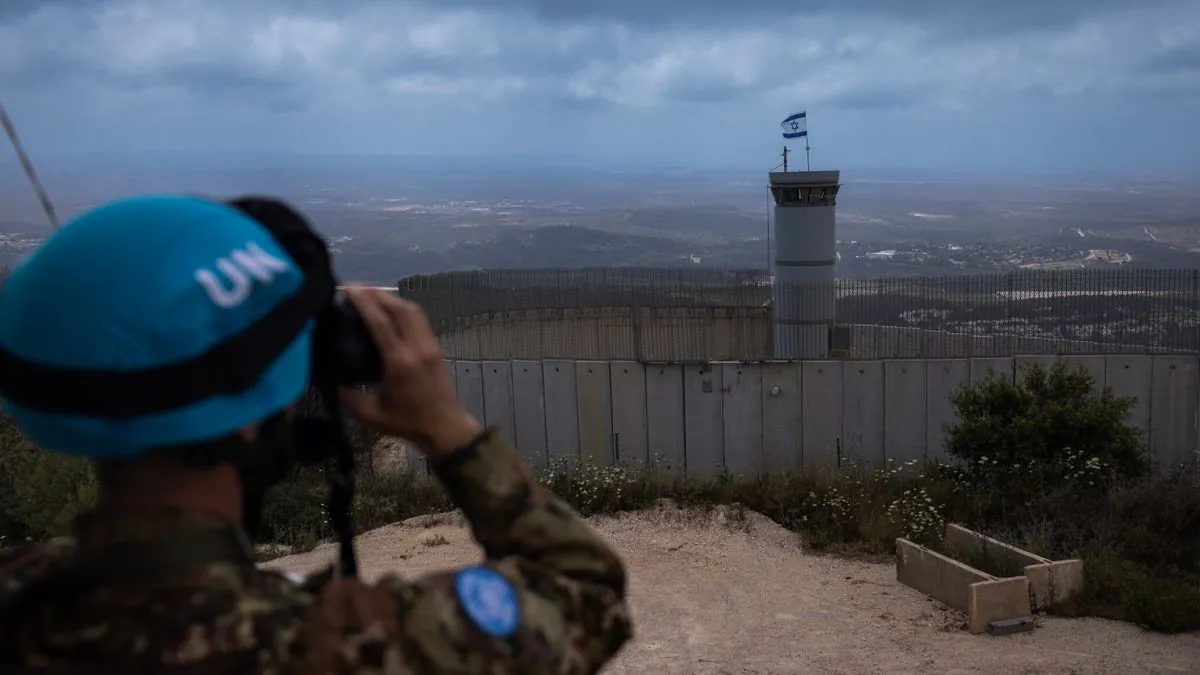In a pressing appeal made approximately one year ago, the United Nations human rights chief urged for immediate action to prevent further escalation of hostilities between Israel and Hezbollah. This call came amidst growing concerns over the sharp increase in tensions along the Israel-Lebanon border.
Volker Türk, who assumed the role of UN High Commissioner for Human Rights in October 2022, emphasized the critical need for influential actors to intervene. A spokesperson for Türk stated during a Geneva press briefing, "UN High Commissioner Volker Türk calls on all States and actors with influence in the region and beyond to avert further escalation and do everything they can to ensure full respect for international law."
This appeal highlights the UN's commitment to maintaining peace and stability, a core principle since its establishment in 1945 after World War II. The Office of the High Commissioner for Human Rights, founded in 1993, plays a crucial role in promoting adherence to international humanitarian law, which prohibits attacks on civilian targets.
The Israel-Lebanon border has been a flashpoint of recurring tensions since Israel's withdrawal from southern Lebanon in 2000. The presence of the United Nations Interim Force in Lebanon (UNIFIL) since 1978 underscores the long-standing nature of these conflicts, with the 2006 Lebanon War marking a significant escalation between Israel and Hezbollah, a Lebanese Shiite Islamist political party and militant group founded in 1982.
The humanitarian impact of the escalating conflict was starkly illustrated by reports from Lebanese hospitals. Abdinasir Abubakar, a World Health Organization (WHO) official in Lebanon, revealed at the same press briefing that healthcare facilities were overwhelmed by the influx of wounded individuals. Many patients presented with injuries to their eyes and faces, posing significant challenges for treatment and potentially leading to long-lasting psychological impacts.
This situation has further strained Lebanon's healthcare system, which was already grappling with economic challenges and the aftermath of the COVID-19 pandemic. The overwhelming of hospitals can lead to increased mortality rates due to delayed or inadequate treatment, highlighting the urgent need for de-escalation and humanitarian support.
The UN's call for action reflects the complex diplomatic landscape surrounding the conflict. The concept of "actors with influence" often extends beyond the immediate parties, encompassing regional powers and global superpowers. This multilateral approach to conflict resolution is a hallmark of UN diplomacy, often involving negotiations and mediation efforts.
As tensions continue to simmer, the international community remains focused on preventing a wider regional conflict. The UN Security Council, which has passed numerous resolutions concerning the Israel-Lebanon border, may play a crucial role in these efforts. The situation underscores the ongoing relevance of international law, including the Geneva Conventions, which aim to protect civilians during armed conflicts.
The coming days and weeks will be critical in determining whether diplomatic efforts can successfully de-escalate the situation and prevent further humanitarian crises in a region already beset by political and economic challenges.
